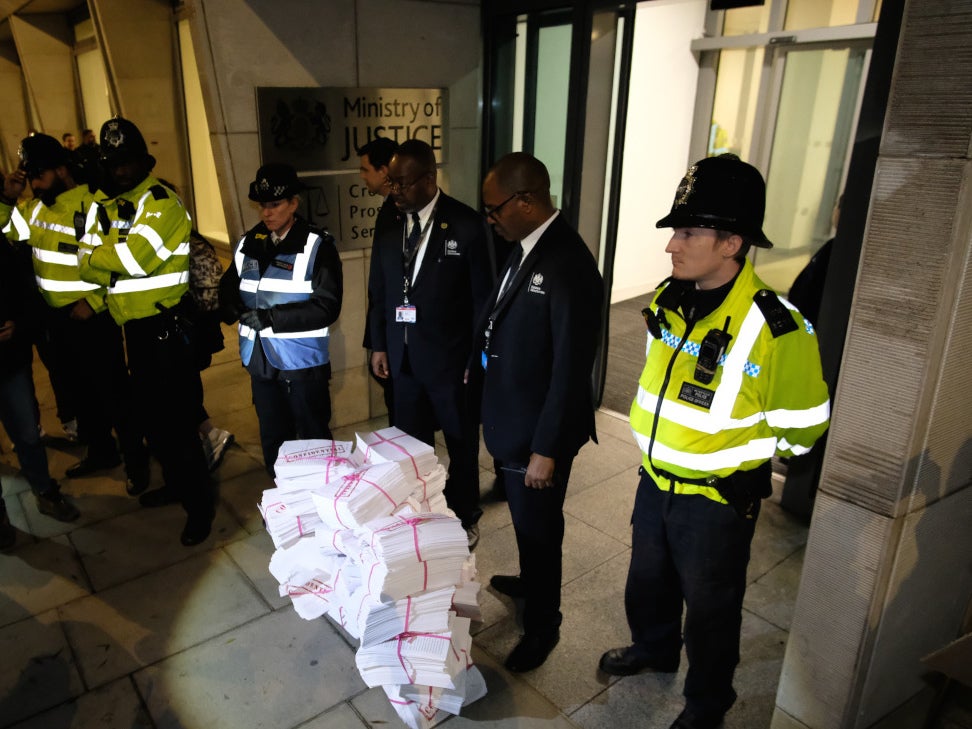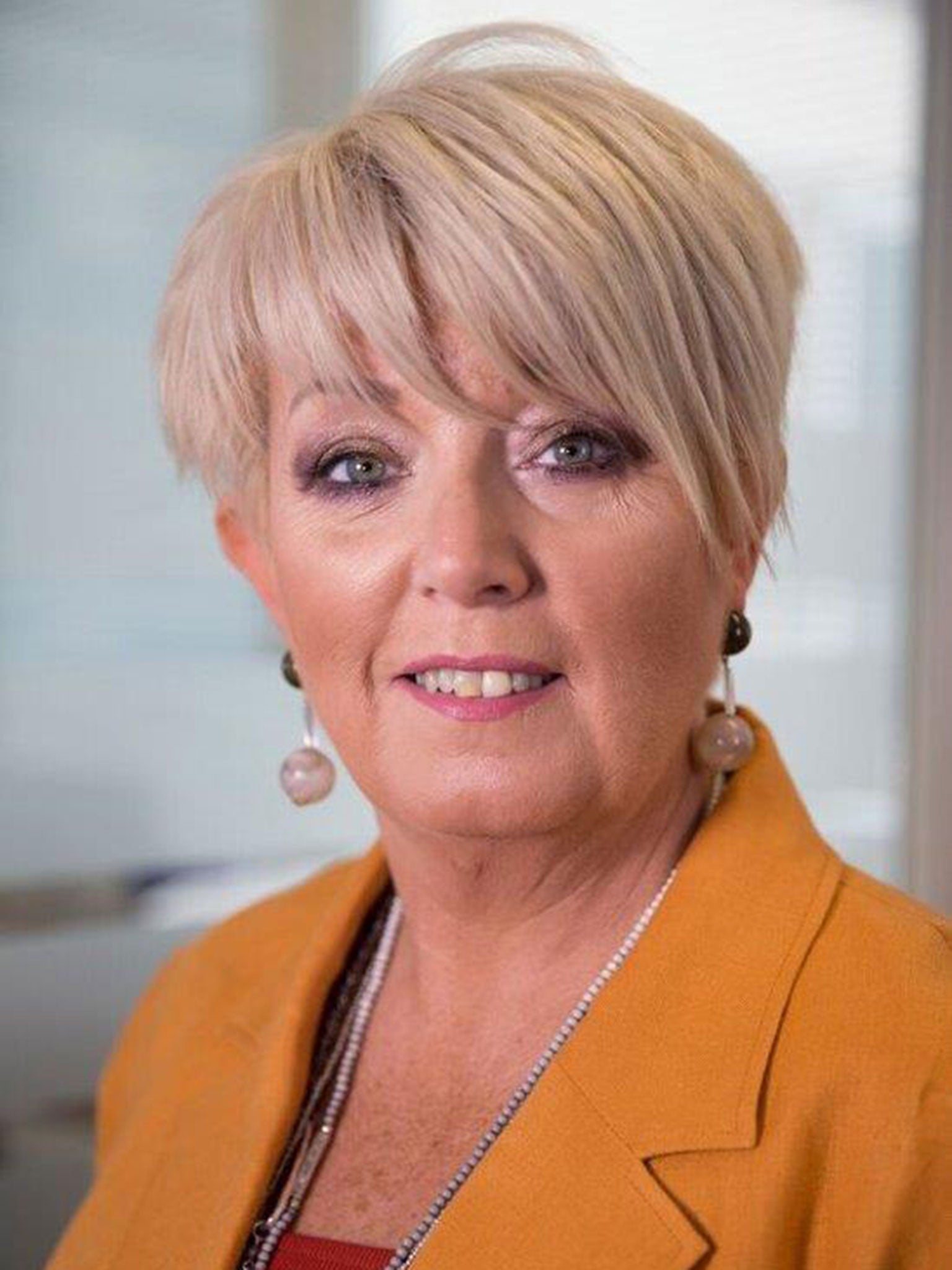Rape victims may not report attacks because of ‘intrusive’ phone demands, watchdog warns
Victims’ commissioner says victims being ‘retraumatised’ by investigations

Rape victims may not report attacks because of “intrusive” demands for their mobile phones and personal records, a report has warned.
Baroness Newlove, the outgoing victims’ commissioner for England and Wales, said there had been a “breakdown in confidence between victims of sexual violence and the criminal justice system”.
In her annual report, she said the explosion of digital evidence meant complainants were “routinely having their personal lives disproportionately investigated and disclosed in criminal trials”.
“In doing so, we are retraumatising them and potentially infringing a most basic human right – the right to privacy,” Baroness Newlove said, citing demands for blanket access to personal and medical records.
“Disclosure of such sensitive material can have a devastating emotional effect on the victims. Crucially, I suspect many victims are being deterred from reporting rape to avoid this intrusive disclosure.”
She sounded the warning after The Independent interviewed rape victims who had been told they must hand police their mobile phones and allow access to records from schools, GPs and therapists to ensure their attackers were charged.
One woman told how she faced demands over a stranger attack that happened eight years before, despite police having already identified her rapist using DNA.
She said the investigation felt like “one intrusion after another”, adding; “I’m not actually sure I would have gone ahead with the case if I’d known what was part of the process.”
Another victim waived her right to anonymity to reveal how her alleged attacker was not prosecuted after appearing to “confess” to raping her in a Facebook message.
“In my view rape has become decriminalised,” Bonny Turner said. “If a confession isn’t enough to even get to court there’s no hope for anyone else.”
A third victim said she withdrew her rape complaint after refusing police access to her mobile phone, because she feared evidence of previous one-night stands would be used against her.
The victims’ commissioner’s report said only one in five victims of sexual assault report it to police, as research shows the persistence of myths including that rape must include physical violence.
Only 1.7 per cent of alleged rapes and 3.8 per cent of sexual offences reported to police in England and Wales now result in a charge, sparking a legal challenge by the Centre for Women’s Justice and End Violence Against Women coalition.
MPs have urged authorities to tackle plummeting prosecutions and accused the Crown Prosecution Service (CPS) of a “covert change in policy” in the wake of a 2017 spate of collapsed rape cases.
Some police officers have told victims that the CPS was demanding more evidence following the scandal, where messages and photos that acquitted suspects was not disclosed.

The CPS has denied any change and said it applies the same legal and ethical code to all crimes, and has drawn up controversial forms used by police to request phones from victims.
The Information Commissioner’s Office is currently investigating allegations of disproportionate intrusion into complainants’ privacy and the government has launched a separate review of the way sexual violence cases are handled across the criminal justice system.
Baroness Newlove called for victims to be given free legal advice before consenting to handing over their phones or personal records, adding: “For many victims, the criminal justice journey is as harrowing as the crime itself. This is unacceptable – we are letting these victims down badly.”
Her 2018-19 annual report said the criminal justice system had become a “hostile environment” for many victims of all types of crime, calling for them to be given statutory rights to be informed, heard and challenge decisions.
“We need to change the culture of our justice system, but this can only happen by putting victims on a level playing field with offenders,” Baroness Newlove said. “This does not mean we diminish the rights of offenders. It is about giving justice to all, both offenders and victims.”
She retired as victims’ commissioner last month and was succeeded by Dame Vera Baird QC, who has urged the CPS to “rise to the challenge” of complex cases.
“The CPS have to see what’s coming and deal with it,” Dame Vera told The Independent last month.
“They’re in a position to understand how juries work, how cases work. Their role is to prosecute – not to give up.”
A spokesperson for the National Police Chiefs’ Council said victims’ consent was requested for information relevant to investigations.
“We understand that how personal data is used can be a source of anxiety and we would never want victims to feel that they can’t report crimes because of ‘intrusion’ in their data,” he added.
“The digital evidence consent form makes clear that investigators should respect individual rights to privacy and not go beyond reasonable lines of enquiry."
A CPS spokesperson said: “Sexual offences can have a devastating impact, and it’s essential that all victims have confidence to report their experiences.
“There are strict rules which mean that digital data should only be accessed when it forms a reasonable line of enquiry, and private information not connected to the case must not be shared with the defence or shown in court.
“Balancing privacy with a thorough investigation is in everyone’s interests to ensure a fair trial.”
